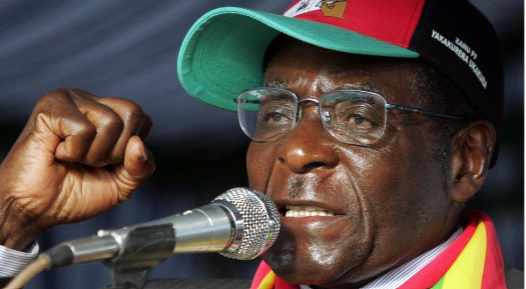
A BBC Panorama investigation has found evidence that suggests one of
Britain’s biggest companies paid a bribe to the former Zimbabwean leader
Robert Mugabe.
Documents show British American Tobacco (BAT) was involved in negotiations to pay between $300,000 and $500,000 to Mugabe’s Zanu-PF party in 2013.
The documents also reveal BAT was paying bribes in South Africa and using illegal surveillance to damage rivals.
BAT says it is committed to the highest standards of corporate conduct.
President Mugabe’s 37-year rule was secured through elections marred by
allegations of fraud and violence. He was ousted in 2017 and died in 2019. The ruling party Zanu PF is now under new leadership.
In a joint investigation with the Bureau of Investigative Journalism and the University of Bath, Panorama obtained thousands of leaked documents.
They show how BAT funded a network of almost 200 secret informants in southern Africa. Most of this work was outsourced to a South African private security company called Forensic Security Services (FSS). FSS was officially tasked with fighting the black-market cigarette trade, however former employees have told the BBC that they broke the law to sabotage BAT’s rivals.
The Zimbabwe connection
Internal documents show in one operation, FSS staff were instructed to close down three cigarette factories run by BAT’s competitors in Zimbabwe. FSS paid a local firm to conduct surveillance on a Savanna Tobacco factory in 2012, but the company got caught.
Three of its directors were charged in connection with illegal surveillance. The arrests prompted the then president, Robert Mugabe, to make a speech condemning the men’s actions and BAT’s suspected involvement.
However, Panorama has found that behind the scenes, contractors working on behalf of BAT were talking to Zimbabwean officials. The man who was sent in to negotiate a deal, who wishes to remain anonymous, told Panorama he bribed a number of government officials to secure a meeting to discuss the men’s case.
He said: “I had to make it clear that they’re going to expect a nice thick
envelope of notes.”
Documents seen by the BBC confirm that the man was provided with the equivalent of US$12,000 in South African rand. They also suggest the money for the bribes was provided by BAT.
An internal memo outlines the deal that was proposed. The Zimbabwean official said that with the upcoming presidential elections, a donation to Mugabe’s party – Zanu PF – would help.
The memo said: “With this donation, they could then go back to the President” to
try to get the problem sorted out.
“The amount of the donation would have to be in the region of between
USD300,000 to USD500,000 to Zanu PF,” it said.
The documents do not show whether the bribe was in the end paid, but Panorama has spoken to three sources who have confirmed that BAT was aware of the terms of the deal on offer.
Within days of the deal being offered, all three directors were free. BAT declined to answer Panorama’s questions about the Zimbabwe payments, but it did not deny paying a bribe to Robert Mugabe.
It is against UK law for a British company to pay bribes, no matter where the
payment takes place.
Mwanzo Editor.





